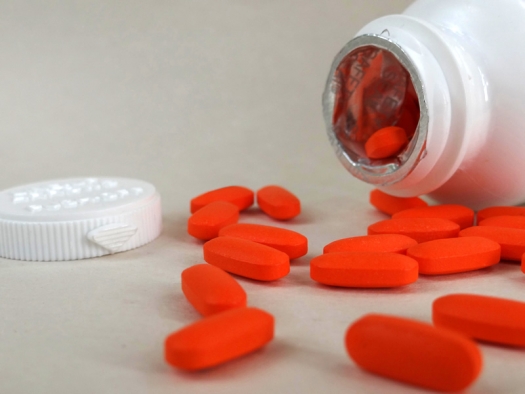NSAIDtablets.jpg

Photo by Dodgerton Skillhause, ©2013 / morguefile.com
Heart patients often have other health problems, such as arthritis, and take a variety of pharmaceutical drugs to deal with the pain.
Such drugs, however, present additional health challenges and risks. NSAIDs (non-steroidal anti-inflammatories) are a prime example. This class of drugs has the potential to affect the kidneys and liver, contribute to high blood pressure in women, and cause intestinal bleeding. Some research suggests that NSAIDs are cardio-toxic. I have always warned patients not to take them on a regular basis for any length of time.
A new study out of Denmark offers evidence that the use of NSAID painkillers is associated with a "persistently increased risk" of death after an initial heart attack. The researchers, from the cardiology department of Copenhagen University Hospital, reviewed NSAID use from 1997 to 2009 among a nationwide registry of nearly 100,000 patients following a first-time myocardial infarction.
While it is well known that cardiovascular risk declines rapidly after the first year, the use of NSAIDs among this patient population kept the risk level high out to five years. The medications cited in their study included ibuprofen (Advil), aspirin, naproxen sodium (Aleve), celecoxib (Celebrex), rofecoxib (Vioxx, which was recalled in 2004), and diclofenac (Voltaren). In an earlier study, the same researchers reported that NSAIDs are harmful among heart attack and heart failure patients even after short-term use.
Although statistical studies such as this do not establish causality, the impact of these drugs on heart patients requires extreme caution by doctors when considering how to deal with any parallel pain problems. The Danes found, for instance, that naproxen was the NSAID with a lower cardiovascular risk, yet it had a higher risk of gastrointestinal bleeding than even Vioxx. GI bleeding is associated with poor prognosis among heart attack patients.
In my practice, I encountered many side effects from taking painkillers, particularly among women. My recommendation has always been to use natural alternatives, such as SAM-e, MSM, glucosamine, una de gato, and white willow bark, a natural cousin of aspirin.
Reference
Olsen AM, et al. Long-term cardiovascular risk of NSAID use according to time passed after first-time myocardial infarction: a nationwide cohort study. Circulation. 2012. [Epub 2012 Sep 10.]
Originally published in Heart, Health & Nutrition, November 2012. Used with permission.


